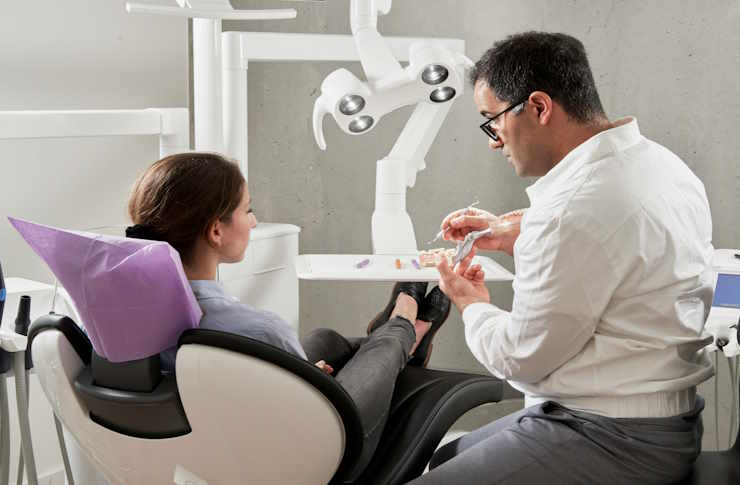Finding the Right Dentist for Seniors: What to Look for in 2025
As we age, dental needs change—and finding a dentist who understands those changes can make all the difference. From managing dry mouth to maintaining dentures or supporting overall oral health, seniors benefit from specialized care that prioritizes comfort, experience, and prevention. This guide explores what to consider when choosing a dentist for seniors and how the right provider can support long-term well-being.

What specialized services should a senior-friendly dentist offer?
A comprehensive senior-focused dental practice should provide services that address age-related oral health challenges. Essential services include periodontal disease management, as seniors face higher risks of gum disease due to medications and health conditions. Dry mouth treatment is another crucial service, since xerostomia affects many older adults and can lead to increased cavity risk.
Specialized services should also encompass denture care, including adjustments, repairs, and relines. Many senior-friendly practices offer sedation dentistry options for patients with dental anxiety or mobility issues. Additionally, oral cancer screenings become increasingly important with age, making this a vital component of senior dental care.
How important is accessibility and comfort in a dental office for seniors?
Physical accessibility and comfort features significantly impact a senior’s dental care experience. A senior-friendly office should meet ADA compliance standards with wheelchair accessibility, grab bars in restrooms, and wide doorways. Ground-floor locations or elevator access help patients with mobility challenges.
Comfort amenities make a substantial difference in patient satisfaction. These include comfortable seating in waiting areas, adequate lighting, clear signage with large fonts, and staff trained to assist patients with hearing or vision impairments. Temperature control and quiet environments also contribute to a more pleasant experience for older patients who may be more sensitive to environmental factors.
What experience and qualifications should you look for?
When selecting a senior-focused dentist, prioritize providers with specific geriatric dentistry training or extensive experience treating older adults. Look for dentists who understand how aging affects oral health and how dental issues connect to overall health conditions common in seniors.
Board certifications in periodontics, prosthodontics, or oral surgery can be valuable, depending on your specific needs. Additionally, seek dentists who maintain continuing education in geriatric care and stay current with age-related dental research. Experience working with patients who have medical conditions like diabetes, heart disease, or dementia demonstrates the provider’s ability to deliver comprehensive care.
How can technology enhance dental care for seniors in 2025?
Modern dental technology offers significant advantages for senior patients. Digital X-rays reduce radiation exposure and provide immediate results, minimizing appointment time. Intraoral cameras help patients better understand their oral health by providing clear visual explanations of treatment needs.
Laser dentistry technology can reduce discomfort and healing time for gum treatments, particularly beneficial for seniors with slower healing processes. Computer-aided design and manufacturing (CAD/CAM) systems enable same-day crowns, reducing the need for multiple appointments. Telemedicine consultations are increasingly available, allowing seniors to discuss concerns with their dentist remotely when travel becomes challenging.
Unique considerations for senior dental care in America
The American dental landscape for seniors includes several unique factors that influence care decisions. Medicare typically doesn’t cover routine dental care, leading many seniors to rely on Medicare Advantage plans or private dental insurance. Some states offer Medicaid dental benefits for seniors, though coverage varies significantly.
Community health centers across the United States often provide sliding-scale dental services for seniors with limited income. Additionally, dental schools frequently offer reduced-cost care provided by supervised students. Many areas have mobile dental services specifically designed for seniors in assisted living facilities or those with transportation challenges.
How do dental implant costs and options vary for seniors in 2025?
Dental implant costs for seniors can vary significantly based on location, complexity, and provider experience. Single implants typically range from $3,000 to $6,000, while full-mouth reconstructions can cost between $30,000 and $70,000. Seniors may qualify for payment plans or financing options to make treatment more accessible.
| Treatment Type | Average Cost Range | Provider Options | Insurance Coverage |
|---|---|---|---|
| Single Implant | $3,000 - $6,000 | Private practices, specialists | Limited coverage |
| Implant-Supported Dentures | $12,000 - $25,000 | Prosthodontists, oral surgeons | Partial coverage possible |
| Full-Mouth Reconstruction | $30,000 - $70,000 | Specialized implant centers | Rarely covered |
| Mini Implants | $1,500 - $3,000 | General dentists, specialists | Limited coverage |
Prices, rates, or cost estimates mentioned in this article are based on the latest available information but may change over time. Independent research is advised before making financial decisions.
Alternative options for seniors include implant-supported dentures, which offer improved stability at lower costs than full implant reconstruction. Mini implants represent another cost-effective option for patients with insufficient bone density for traditional implants. Many providers offer senior discounts or work with financing companies to create manageable payment plans.
Making the right choice for long-term oral health
Selecting the right dentist for seniors involves balancing specialized services, accessibility, experience, and cost considerations. The ideal provider combines technical expertise with understanding of the unique challenges seniors face. Technology enhancements and flexible payment options make quality dental care more accessible than ever before. Taking time to research local providers, visit offices, and ask detailed questions about services and costs ensures seniors receive the comprehensive, comfortable care they deserve for maintaining optimal oral health throughout their golden years.
This article is for informational purposes only and should not be considered medical advice. Please consult a qualified healthcare professional for personalized guidance and treatment.




